- Home
- Seanan McGuire
Laughter at the Academy Page 30
Laughter at the Academy Read online
Page 30
But humanity was not fully confined within my college campus, was it? And even if it had been, I only had to look around to see that things weren’t getting better the way I needed them to. People were dying in the streets, not because they’d fallen afoul of some mad genius, but because they’d run afoul of their own kind. Children went hungry. Adults continued to say “but he has his whole life ahead of him” like it somehow absolved their boys of their crimes against their girls. His whole life seemed to matter a great deal. Her whole life didn’t seem to matter at all. It was too much. It was too much. It had to stop. The temptation, which had only ever been momentary, passed.
Eleven minutes now. Your heart rate is elevated. Your vision is beginning to blur. The ache in your joints is more pronounced. Have you heard the first screams in the streets, or are you reading this in an isolated location? If you cannot hear the screams, I suggest you leave the room you are currently in and proceed until you can hear them. It will elevate your heart rate further; it will make your joints ache like fire, and pump needles into your stomach. It may even cost you a few hundred words. You may not make it to the end of this message. But then, there was never any guarantee that you would, and you will do better if you finish the progression of your symptoms in a place you can escape.
I have run enough tests with this program, with this letter, to know the expression on your face. You may call the authorities if you like. It’s not as if I could stop you; I’m not there, after all. You can tell them you’ve received a…is this letter threatening? I don’t think it’s threatening yet. It’s expository. Tell them you’ve received an expository letter that seems to be predicting relatively minor medical symptoms which most people experience daily. Perhaps you’ll be fortunate. Perhaps the person who takes your call will have noticed their own symptoms before picking up the phone. Perhaps they will not tell you that it is psychosomatic. Perhaps they’ll realize.
It won’t change anything. You understand that, don’t you? It won’t change anything, and you will have wasted some portion of an increasingly scarce resource. I can’t control what you choose to do, but if I were you, I would elect to keep reading. At least then you might have a few moments of comprehension before comprehension goes away forever. Isn’t it better to understand?
We have always lived in a world of miracles. We have harnessed the atom, learned to power an entire world with lightning, and plunged our needles into the bowels of the planet to extract the liquefied skeletons of dinosaurs. Isn’t that amazing? Since the Industrial Revolution, we have fueled a global civilization with dino-power, and we have treated it as if it were commonplace.
Scary movies like to talk about how bad it is to build a home on top of a cemetery. They say the unquiet dead will rise and take their revenge. We’ve spent more than a century building everything we have on the graveyards of the dinosaurs, wrenching them from the earth to display in our museums and pump into our cars. Don’t you think it’s time for them to have their revenge?
I’m sorry. I digress. Where was I?
College.
Dr. Wu returned, and with every disaster, every catastrophe, his smile faded. He knew humanity was not deserving of his bright and perfect Park. Even if it could be made real, we would all have been Dennis Nedry, the man who betrayed Jurassic Park for personal gain, who didn’t think they had made anything worth making. We would try not to be—we would swear we loved the dinosaurs, even as we exploited them. All of us. Even me. Humanity has no place in Jurassic Park. You understand that, don’t you? We were the flaw in the grand design. Not the fences, not the raptors. Us.
A few of the girls in my dorm teased me for essentially worshipping a junk science thriller about dinosaurs, but most of them left me alone. College was where you were supposed to have weird beliefs, right? I believed in the fossil record, in the inevitability of the extinction event, and I went to class, and I studied, and I remembered the children who teased me, and I remembered the adults who looked away. I remembered everything. I never let anything go.
Four years and bang! A degree in Biology, with a specialization in Genetic Engineering, and a minor in Paleontology. Three more years and pow! A PhD in Genetic Engineering, and job offers from around the country, from around the world. For the first time in my life, everyone wanted me. It was nice, being wanted for a change. It might have turned my head, if college hadn’t already tempted me and lost. Every comet must experience the gravitational force of some second body if it’s going to build up sufficient speed to make an impact.
You probably saw the papers when I came home. “Local genius returns to give back to the community.” I passed up million-dollar salaries and private jets to work for a tiny con-agra company working on creating a softer, gentler, less-inflammatory form of gluten. They swore they were going to make celiac-safe wheat within the decade, and I was their magic bullet.
We did it, of course. Last year. You’ve probably enjoyed our delicious NuWheat™ products at home and in restaurants. I really did an amazing job. I’m proud of myself, and I’m glad my last piece of ethically clean research was devoted to making life better for people who didn’t deserve to be in pain. I improved lives. I am proud of that. I will remain proud of that through everything that follows. There’s a reason some people have chosen to invest in ethical family farms: they still eat meat, but at least they know the chicken on their plate lived a happy life before it was harvested.
Have you lived a happy life? Have you made good choices about your time and energy, and how you spent them? I hope so. I hope you look back on everything and smile and smile and know you did as well as you could with what you had. I hope you will rejoice. It would be better that way.
The papers should have said “local genius returns to take revenge on small-minded fools who laughed at her while she was vulnerable, kicked her while she was down, and left her incapable of forming meaningful human relationships.” Or “local genius smart enough to understand that no one ever gets over high school; is finally intending to be prom queen.” Or “local genius comes home to show you, show you all.” I’ve always liked that phrase. “Show you all.” Show you what, exactly? It’s so flexible. It could apply to virtually anything.
Local genius returns to begin final refinements on the project she started in her freshman year of college, holed up in her dorm and reading about the genetic links between species, the commonalities that tie us all together.
Local genius returns because what’s the fun in breaking the natural laws of the universe if no one who sees you do it understands how impressive you’re being.
Local genius returns because if you’re going to do something, you should be standing as close to ground zero as possible. You should understand the consequences. You can’t do good by standing on a mountaintop and telling people they deserve this. It’s not fair. It’s not right. I needed to be among people who would judge me—and you’ve always been very, very good at judging me, haven’t you? I may have a gift for science, but the people in this town are Olympians of pain.
It’s been a little over fifteen minutes, no matter how quickly you read. The aching in your joints is probably keeping you from standing up straight now. That metallic taste in your mouth is getting more severe; the pain in your teeth may be making your eyes cross. Or maybe they’re just doing that on their own. Are you gluten intolerant? That’s about to make a difference.
The fields will take years to reset to a pre-domestic makeup, if they ever fully do. Our cities will fall before the marching armies of wind and weather, our seeds will scatter, but the changes we’ve made to the plants we chose to cultivate will last for centuries. There will always be high quantities of gluten in the wheat. I couldn’t condemn the people suffering from a nasty immune disorder to short, painful lives, where their inability to digest gluten would collide with a sudden inability to digest animal proteins and leave them dead before their time. So I put markers in the NuWheat™. I told it what to say when the rest of my tools showed up
and started giving instructions—especially if those instructions were given in a system which contained no gluten.
The percentage of people who either have a gluten intolerance, live with someone with a gluten intolerance, or choose to eat gluten free because they think it’s somehow “healthier” is approximately equal to the number of carnivores in a balanced population.
It’s like nature was getting things ready for me.
I am sorry. I hope you’ll understand that. I know it’s hard to look at the things I’ve done, the things I’m describing, and see my side of things, but I am sorry. I tried to find other ways of achieving my goals, but sadly, humanity was too good at being human. We are the single largest mammalian population. We’ve killed or domesticated everything else. My estimates say that only one in three subjects will survive the first stage of the transition, and that as many as one-half of the offspring of the first generation will be born resembling their grandparents. Throwbacks. Non-viable. So you see, if I wanted to recreate Dr. Wu’s dream, it had to be humans, and it had to be everyone.
Equilibrium will be reached. There will be no more wars, no more assaults…no more Nedrys. From now on, when we attack each other, it will be out of hunger, and we will kill what we claim.
I know that Jurassic Park was written by a man named Michael Crichton, who wanted to entertain. I know that some people think he was inspired by—or stealing from—a man named Harry Knight, who wrote a book called Carnosaur. I am inspired by them both. I am stealing from them both. I am following Dr. Wu. I trust him to tell me what comes next.
At twenty minutes, you will likely lose consciousness. If you are a slow enough reader, this may have already happened. I am sorry.
At thirty minutes, you will be grateful to be unconscious, as your body will begin rewriting itself according to my templates. I estimate forty percent of fatalities will occur during this phase.
At three hours, you will no longer be human.
At eight hours, the first subjects will awaken. If I have timed things correctly, the herbivores will wake first. Their instincts will drive them to flee the cities, to clump together, to begin looking for safe ground.
At twelve hours, the remaining subjects will awaken.
The dinosaurs were innocent. They did not bully. They did not taunt. They did not kill for fun. They deserved this planet more than we did. More than we ever could. So I am giving it back to them, and I am using us to do it. I am truly sorry that it has come to this…but again, you started it. Maybe now that we are all dinosaurs together, you can finally accept me.
Welcome to Jurassic Park.
Yours,
Dr. Constance O’Malley, PhD.
Threnody for Little Girl, With Tuna, at the End of the World
This is another story that decided to knock me down and sit on me until I agreed to write it. It began in front of the big fish tank at the Monterey Bay Aquarium, standing and watching as the giant tuna circled endlessly. It was an image that has never left me. I doubt it ever will.
This was one of the first stories written for my Patreon, which we refer to as “The Toaster Project,” and coincided with my relocating from California, where I had lived for most of my life, to Washington state. It was a good thing. I am happy I did it. But it was definitely a stressful experience, and I wrote a lot of “and then the world ended” stories around the time of the move. I feel like this is one of the sweeter ones. It’s definitely one of the sadder ones.
The doorbell rang, and I knew Matthew was dead.
It wasn’t a remarkable sort of knowing, although maybe it should have been. It was too quiet for that, too sad, creeping out of nowhere and filling me from toe to tip with the knowledge that the world was different now than it had been a few moments ago.
If I turned on the news, someone would be talking about it. That should have been a comfort, knowing I wasn’t going to mourn alone. All it did was make me tired. I stood, leaving my computer to compile its code, ticking down the seconds of my working day with mechanical precision, and walked to the door, opening it with a press of my thumb to the authorized entry detector next to the knob.
There was a person on my doorstep, a real person, not a mail robot, wearing the uniform of the United States Postal Service and gingerly holding a large manila envelope. Real paper, to go with the real person. A pack of envelopes like that was worth a month of my salary. I was afraid to reach for it, afraid this was a mistake—hoping this was a mistake—and I could be debited for mussing someone else’s property.
“Catherine Nast?” asked the postal worker, and it wasn’t a mistake: this was really happening.
“Yes.”
“Sign here, here, and here.” The form to release a piece of official government mail was dizzying, and ended with a request for my thumbprint, just in case I was a squatter who had managed to successfully ID-jack the real Catherine Nast to the level of hacking the house. Not common, but it could happen: sixty percent of all full-immersion ID-jackers were uncovered by the post office, IRS, or pizza delivery services.
The red light at the top of the postal worker’s clipboard flashed green, and the envelope was released into my hand, smooth and heavy and irrevocable.
“Have a nice day,” said the postal worker, and then they were gone, disappearing down the hall, off to another essential but infrequent delivery, leaving me standing alone, exposed, with tears running down my cheeks.
Matthew was dead, and the world was never going to be the same.
The discovery of a living Pacific Bluefin tuna was global news. The species had been believed extinct for over a decade, since the last of the aquarium breeding programs had ended in failure. The Pacific Bluefin had been the last known species of tuna to hang on, battling through overfishing and changing oceans until the final tagged individual had been found in a poacher’s net on November 17th, 2032. After that, the species had been assumed lost forever, one more entry in the long book of things that humanity’s time on the planet had destroyed.
Then a research vessel tagging the surviving Humboldt squid population off the California coast snagged something unexpected: a small silver fish, no more than eighteen inches long, with spikes along its spine and a familiar, silvery sheen.
One of the researchers started to weep when she saw it, the last tuna in the world shining in the sun. We have video, her hands clasped over her mouth, tears running down her cheeks as two more researchers cut the tuna free of the net, heedless of the damage done to their equipment, because what was a single net in the presence of the last tuna? They moved the fish to a holding tank, filming all the while, in case something happened before they could get back to shore, in case there was a storm, in case hungry pirates from the drowned islands—which was virtually all of them, from Hawaii to New Zealand—boarded them and took their treasure away.
There were no storms. There were no pirates. The world’s last known Pacific Bluefin tuna was delivered to the Monterey Bay Aquarium on March 2nd, 2035, where it was given a full examination and declared a healthy male.
The world went wild. Tuna fever dominated the news shows and blog cycles. Schools taught impromptu lessons about the ecological and cultural significance of the tuna, while the sole surviving specimen swam lonely circles around the giant viewing pool at the aquarium, no longer free, unaware of his importance. To people who lived in terror that the ocean was broken forever, he represented something almost unthinkable: he represented hope.
When tuna fever began to flag, the conservation orgs that had been using him as their new mascot searched for a way to make him relevant again, and seized on the most obvious: they would give him a name. Not just any name, no. They would allow the entire world to have a say.
The contest was simple. Anyone, anywhere, could enter. The entries would then be judged by a special open-source software program designed to detect profanity in every known language, both natural and constructed, and entries which passed this filter would be put into a single massive pool
. Then, on a simulcast sent to anyone who cared to watch, the winner would be selected. Their chosen name would be given to the tuna, and they and their family would be flown to California to attend a grand gala in honor of the last Pacific Bluefin tuna in the world.
It was calculated. It was designed to stir the sympathies of the world. And so, when the winner was announced as seven-year-old Catherine Nast of Chicago, Illinois, there were people who demanded the random number generation code be released to them so they could tease and tear it apart, looking for the place where the people running the contest had decided to cheat.
It wasn’t there. Little Catie had won the right to name the big silver fish fair and square, and when she went to the gala with her parents, she wore a silver dress with a lacy white skirt that made her feel like a mermaid, or like a princess, or like both at the same time. There were reporters who wanted to talk to her, and when one of them asked why she would give such a magnificent fish such a boring name—because there had been hundreds, even thousands of “Nemo”s and “Neptune”s and “Poseidon”s in the barrel, but according to the data, only one Matthew—she cast her eyes down to the floor and replied with genuine sorrow:
“My grandpa died last month, and when I asked Mom what his name was, she said it was Matthew. So I named the fish after my grandpa. He was the first person to take me to see the ocean.”
It hadn’t been much of a sight, not by the time Catie was born, wide-eyed daughter of the ecological collapse, but it was clear just by looking at her that she hadn’t cared. It had been a day in the company of her grandfather, him loving her, him showing her something that mattered, even if she was too young to understand that once, people had played in the water, instead of standing at a safe distance and covering their noses against the acrid chemical smell of the waves. And now he was gone, and thanks to a spin of a random number generator, his memory would live on, swimming endless circles in a tank that had been designed to hold dozens of tuna, and now held only one.

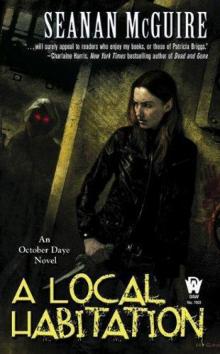 A Local Habitation
A Local Habitation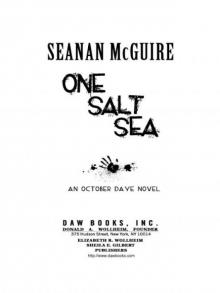 One Salt Sea
One Salt Sea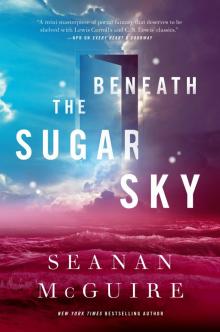 Beneath the Sugar Sky
Beneath the Sugar Sky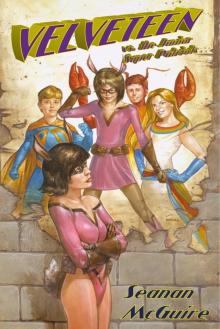 Velveteen vs. The Junior Super Patriots
Velveteen vs. The Junior Super Patriots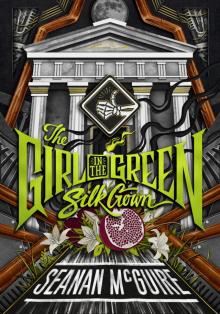 The Girl in the Green Silk Gown
The Girl in the Green Silk Gown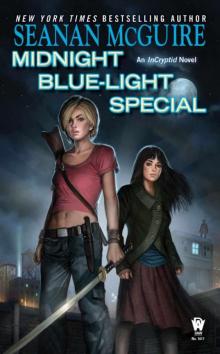 Midnight Blue-Light Special
Midnight Blue-Light Special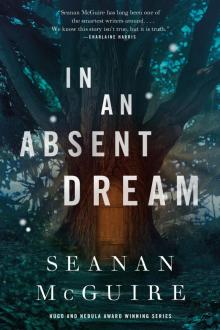 In an Absent Dream
In an Absent Dream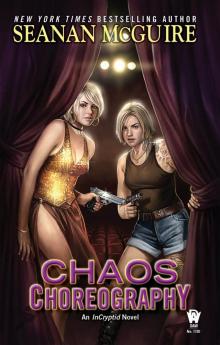 Chaos Choreography
Chaos Choreography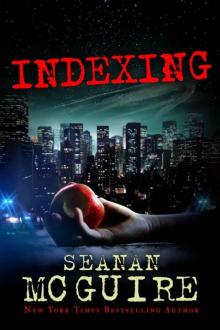 Indexing
Indexing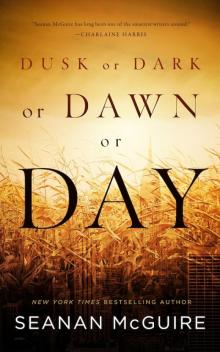 Dusk or Dark or Dawn or Day
Dusk or Dark or Dawn or Day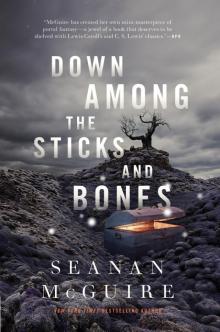 Down Among the Sticks and Bones
Down Among the Sticks and Bones The Razor's Edge
The Razor's Edge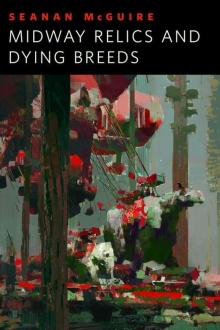 Midway Relics and Dying Breeds
Midway Relics and Dying Breeds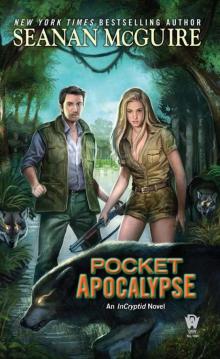 Pocket Apocalypse
Pocket Apocalypse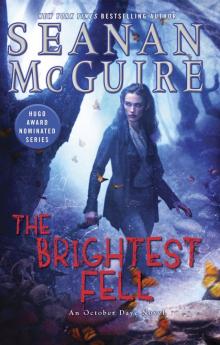 The Brightest Fell
The Brightest Fell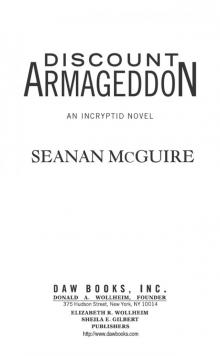 Discount Armageddon
Discount Armageddon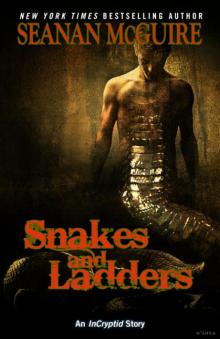 Snakes and Ladders
Snakes and Ladders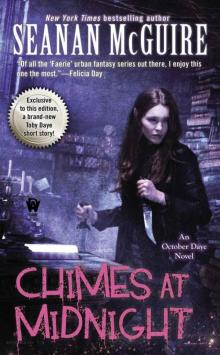 Chimes at Midnight
Chimes at Midnight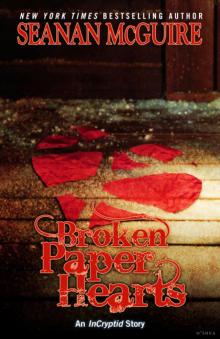 Broken Paper Hearts
Broken Paper Hearts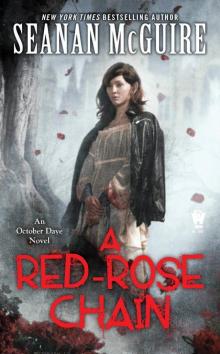 A Red-Rose Chain
A Red-Rose Chain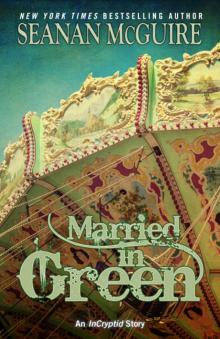 Married in Green
Married in Green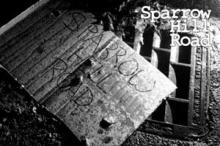 Sparrow Hill Road 2010 By Seanan
Sparrow Hill Road 2010 By Seanan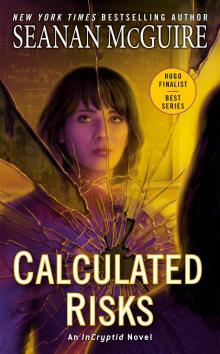 Calculated Risks
Calculated Risks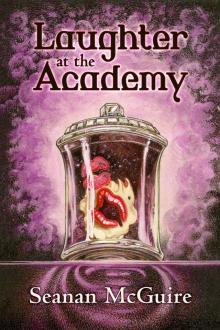 Laughter at the Academy
Laughter at the Academy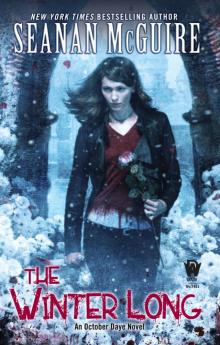 The Winter Long
The Winter Long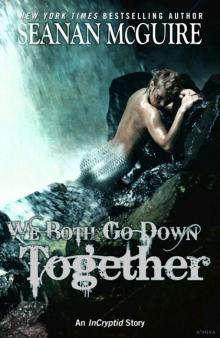 We Both Go Down Together
We Both Go Down Together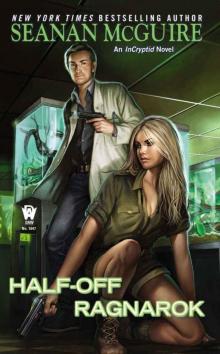 Half-Off Ragnarok
Half-Off Ragnarok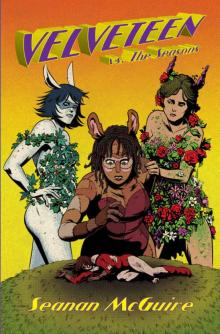 Velveteen vs. The Seasons
Velveteen vs. The Seasons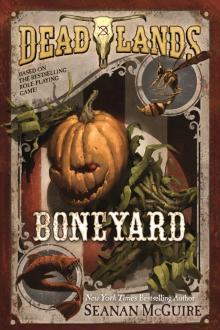 Boneyard
Boneyard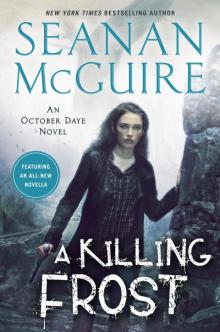 A Killing Frost
A Killing Frost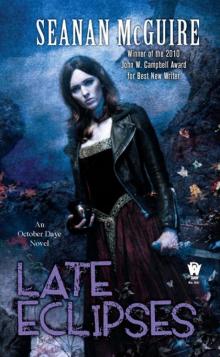 Late Eclipses
Late Eclipses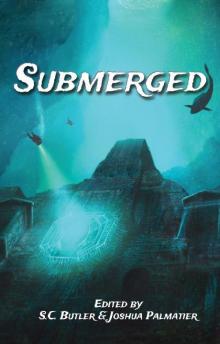 Submerged
Submerged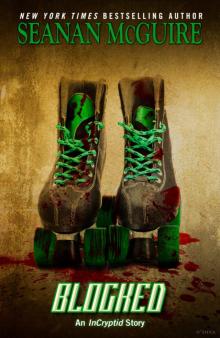 Blocked
Blocked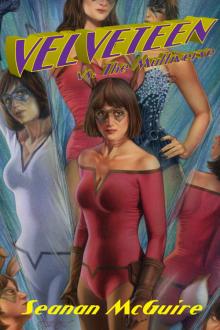 Velveteen vs. The Multiverse
Velveteen vs. The Multiverse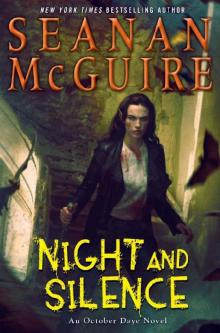 Night and Silence
Night and Silence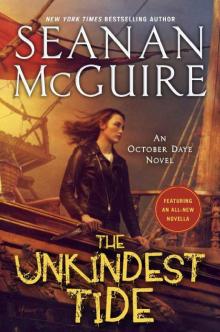 The Unkindest Tide (October Daye)
The Unkindest Tide (October Daye)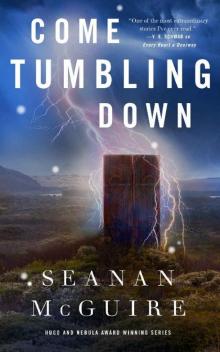 Come Tumbling Down (Wayward Children)
Come Tumbling Down (Wayward Children)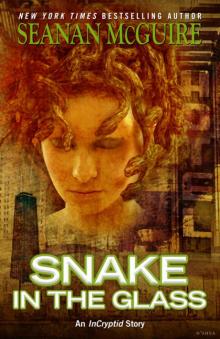 Snake in the Glass
Snake in the Glass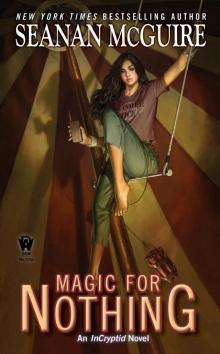 Magic for Nothing
Magic for Nothing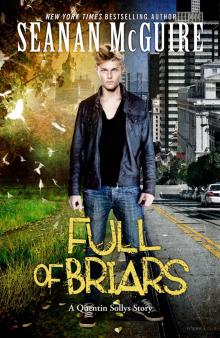 Full of Briars
Full of Briars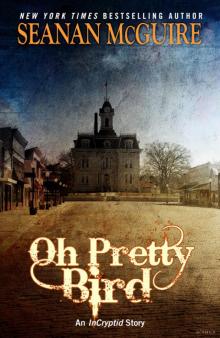 Oh Pretty Bird
Oh Pretty Bird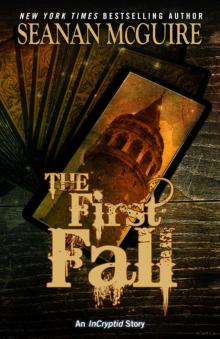 The First Fall
The First Fall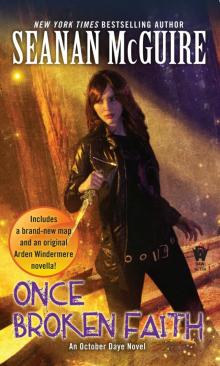 Once Broken Faith
Once Broken Faith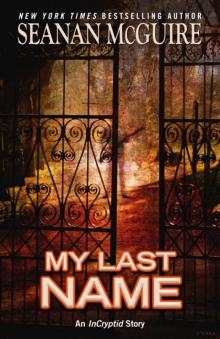 My Last Name
My Last Name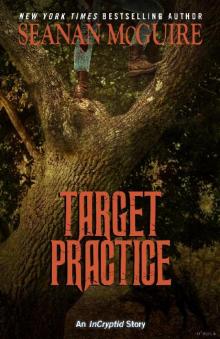 Target Practice
Target Practice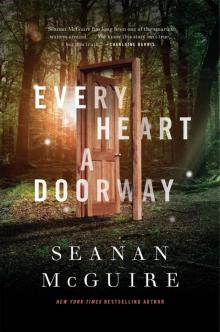 Wayward Children 01 - Every Heart a Doorway
Wayward Children 01 - Every Heart a Doorway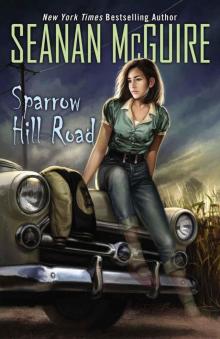 Sparrow Hill Road
Sparrow Hill Road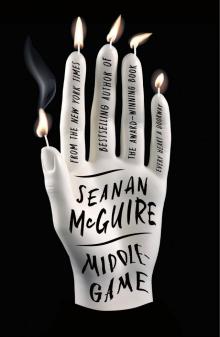 Middlegame
Middlegame Juice Like Wounds
Juice Like Wounds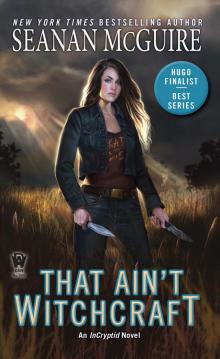 That Ain't Witchcraft
That Ain't Witchcraft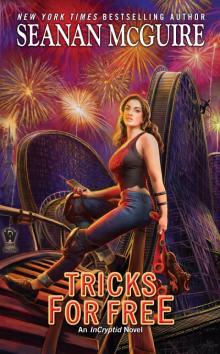 Tricks for Free
Tricks for Free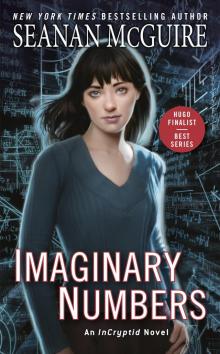 Imaginary Numbers
Imaginary Numbers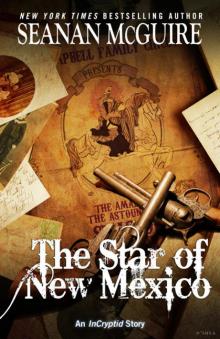 The Star of New Mexico
The Star of New Mexico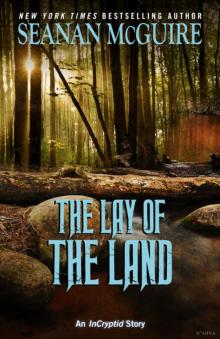 Lay of the Land
Lay of the Land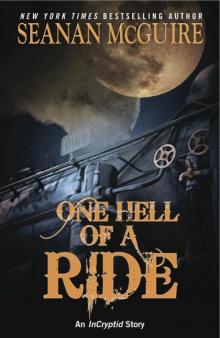 One Hell of a Ride
One Hell of a Ride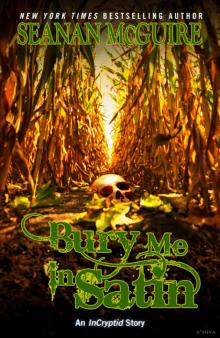 Bury Me in Satin
Bury Me in Satin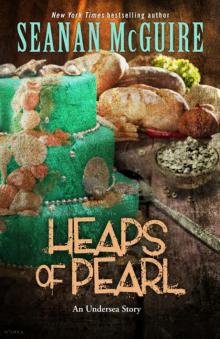 Heaps of Pearl
Heaps of Pearl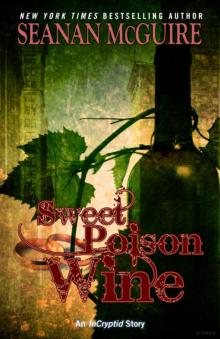 Sweet Poison Wine
Sweet Poison Wine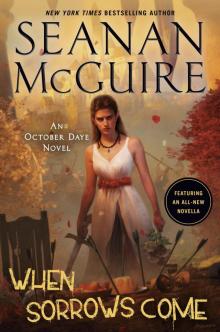 When Sorrows Come
When Sorrows Come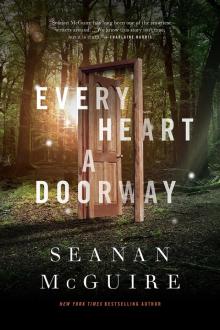 Every Heart a Doorway
Every Heart a Doorway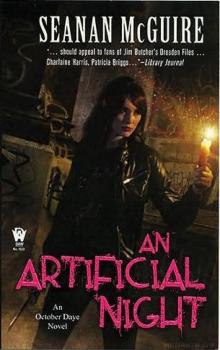 An Artificial Night - BK 3
An Artificial Night - BK 3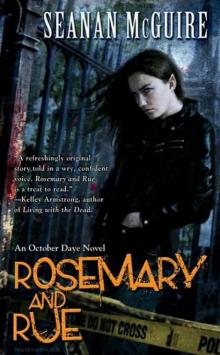 Rosemary and Rue
Rosemary and Rue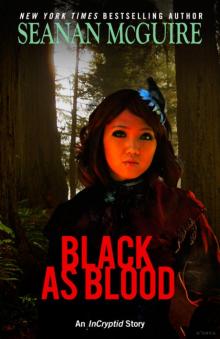 Black as Blood
Black as Blood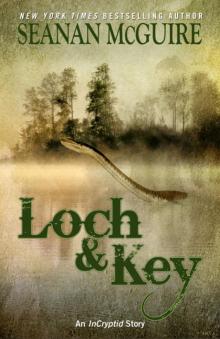 Loch and Key
Loch and Key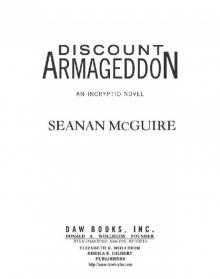 Discount Armageddon: An Incryptid Novel
Discount Armageddon: An Incryptid Novel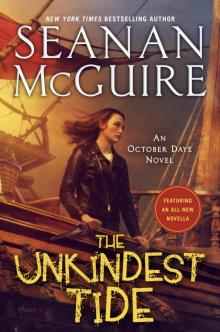 The Unkindest Tide
The Unkindest Tide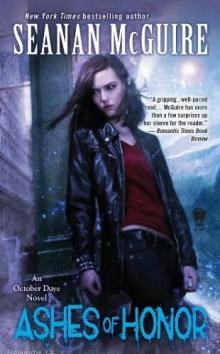 Ashes of Honor od-6
Ashes of Honor od-6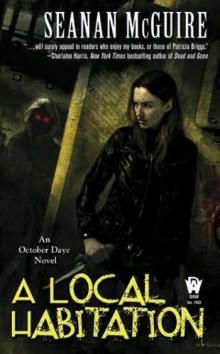 A Local Habitation od-2
A Local Habitation od-2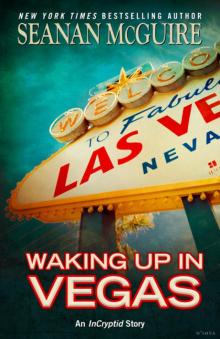 Waking Up in Vegas
Waking Up in Vegas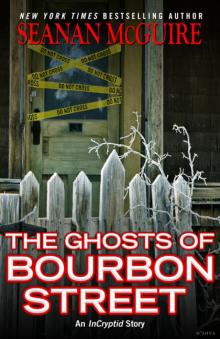 The Ghosts of Bourbon Street
The Ghosts of Bourbon Street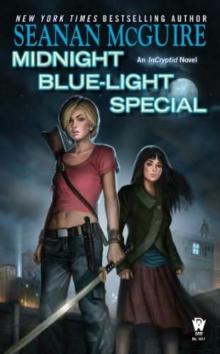 Midnight Blue-Light Special i-2
Midnight Blue-Light Special i-2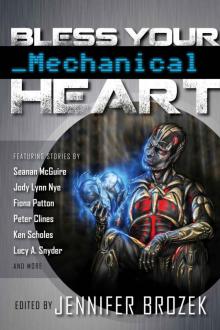 Bless Your Mechanical Heart
Bless Your Mechanical Heart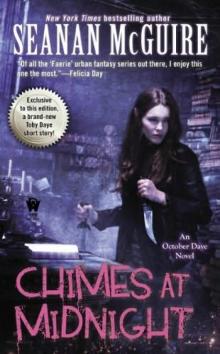 Chimes at Midnight od-7
Chimes at Midnight od-7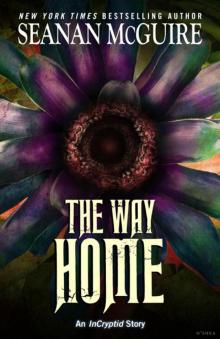 The Way Home
The Way Home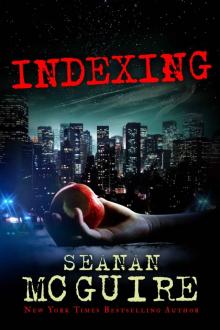 Indexing (Kindle Serial)
Indexing (Kindle Serial)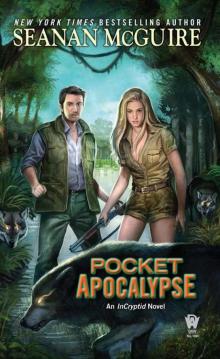 Pocket Apocalypse: InCryptid, Book Four
Pocket Apocalypse: InCryptid, Book Four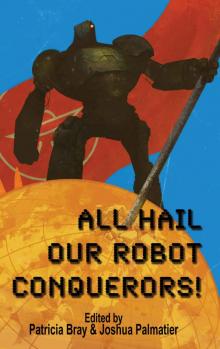 All Hail Our Robot Conquerors!
All Hail Our Robot Conquerors!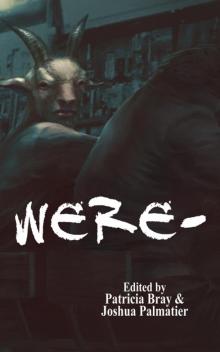 Were-
Were-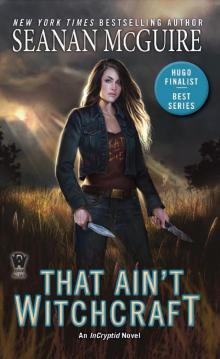 That Ain't Witchcraft (InCryptid #8)
That Ain't Witchcraft (InCryptid #8)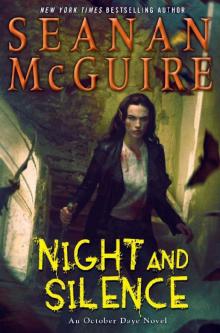 Night and Silence (October Daye)
Night and Silence (October Daye)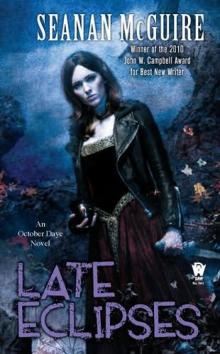 Late Eclipses od-4
Late Eclipses od-4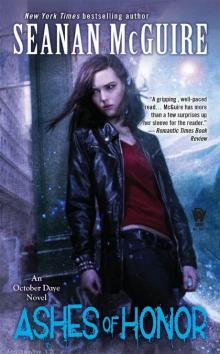 Ashes of Honor: An October Daye Novel
Ashes of Honor: An October Daye Novel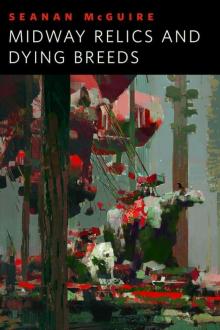 Midway Relics and Dying Breeds: A Tor.Com Original
Midway Relics and Dying Breeds: A Tor.Com Original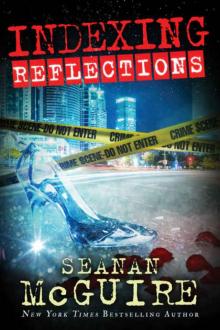 Indexing: Reflections (Kindle Serials) (Indexing Series Book 2)
Indexing: Reflections (Kindle Serials) (Indexing Series Book 2)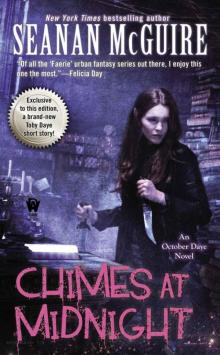 Chimes at Midnight: An October Daye Novel
Chimes at Midnight: An October Daye Novel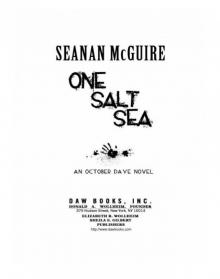 One Salt Sea: An October Daye Novel
One Salt Sea: An October Daye Novel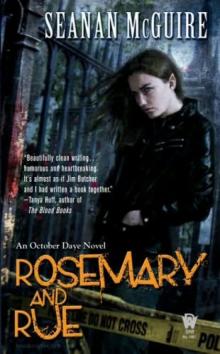 Rosemary and Rue od-1
Rosemary and Rue od-1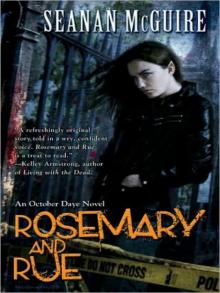 Rosemary and Rue: An October Daye Novel
Rosemary and Rue: An October Daye Novel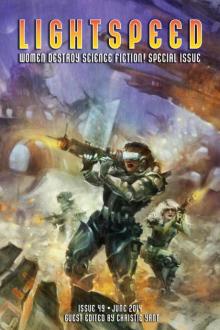 Lightspeed Magazine Issue 49
Lightspeed Magazine Issue 49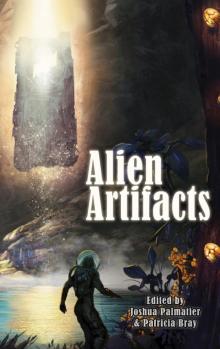 Alien Artifacts
Alien Artifacts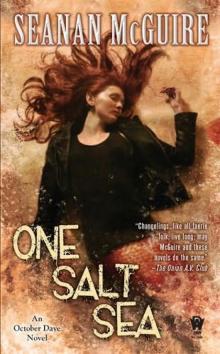 One Salt Sea od-5
One Salt Sea od-5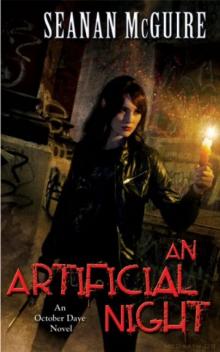 An Artificial Night od-3
An Artificial Night od-3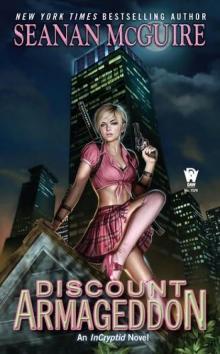 Discount Armageddon i-1
Discount Armageddon i-1